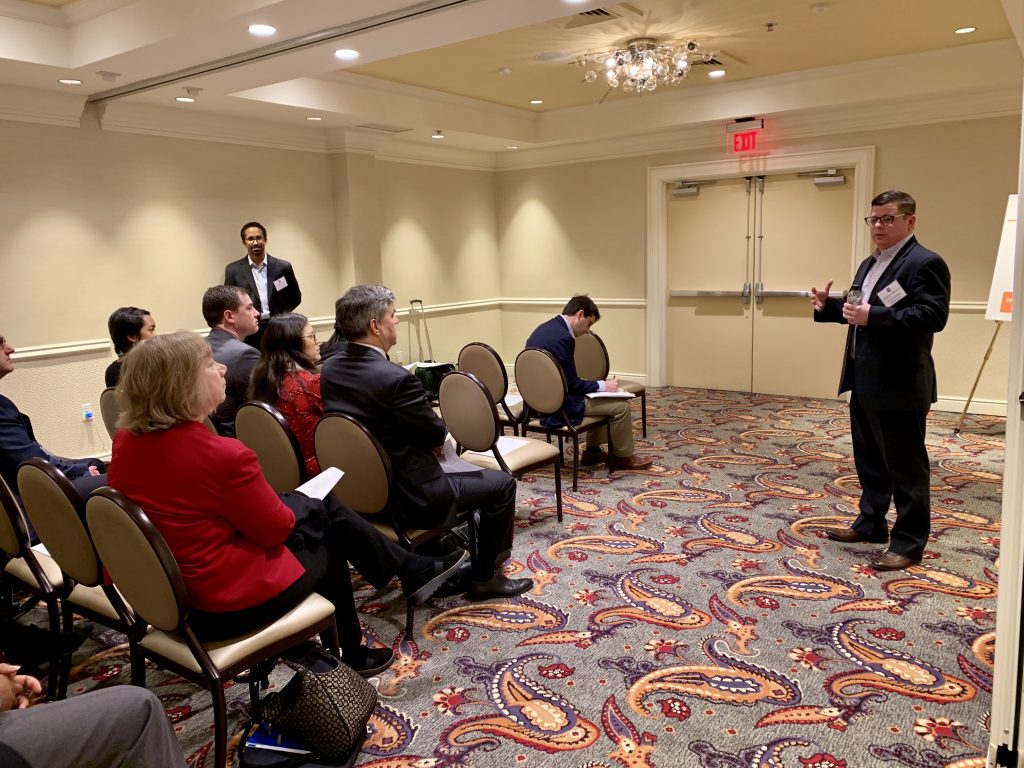Guest post by John Holdsclaw IV, CDFI Coalition Vice Chair and SVP, Corporate Affairs at National Cooperative Bank.
“Racism still occupies the throne of our nation.” Dr. Martin Luther King, Jr.
The social impact news and events group Genorocity defines racial equity as “fairness and justice in policy practice and opportunity consciously designed to address the impacts of historic racial discrimination and inequity, with an eye to equitable outcomes.”
Since its inception, the CDFI Fund’s mission has been to “expand economic opportunity for underserved people and communities by supporting the growth and capacity of a national network of community development lenders, investors, and financial service providers.” Twenty five years later, there are more than 1,000 CDFIs across the country, and they each play an enormous role in addressing the systemic racial bias that exists in the communities that they serve.
In October 2017, I was asked by the W.K. Kellogg Foundation to participate on a panel at SOCAP (Social Capital Markets). The Foundation had launched a racial equity track at the annual impact investing conference to focus on the advancement of racial equity within the impact investing field. According to the Foundation, the “sessions will unpack systemic racial bias in the fields of investing, philanthropy and entrepreneurship, and go beyond awareness to provide actionable insights and practices that support racial equity.”
SOCAP laid a foundation for my personal racial equity journey and I continue to immerse myself in the topic, but not just around impact investing. I have spent a majority of my professional career working in human services, early care and education, and community economic development—all within marginalized communities. Due to this experience, the plight of low-wealth people and the communities where they live have long been a paramount concern of mine. With the widening racial wealth gap and structural racism that continues to exist in this country, there is more work to done to level the playing field. Let me be clear, discussions around racial equity can be complex and difficult to have, but we must embrace that discomfort to further understand the topic.
I applaud the CDFI trade associations that have all introduced racial equity and/or diversity, equity and inclusion (DEI) to their memberships, but this is only the beginning, As a CDFI Coalition Board Member, I have worked to build upon our base of knowledge around racial equity by learning about the diverse communities that CDFIs work in as well as delve into our own unconscious bias that he carry with us every day. We are all human and we ALL have bias. Racial equity and/or DEI are no longer “soft issues” and have been now become a business imperative.

CDFIs must now begin to look at their work through a racial equity lens to ensure that they are making an impact in all communities. It is essential to our mission, as CDFIs, to create a diverse pipeline of young leaders who could become the next level of leaders of the industry, so our industry it reflects the communities we serve. Moreover, there is a competitive business advantage for organizations that understand, embrace, and champion racial equity.
My racial equity journey has taken me from that Kellogg Foundation track to me now being charged with leading the diversity, equity and inclusion strategy at the National Cooperative Bank. While our bank is not a CDFI Bank, we work closely with CDFIs to support low-income communities and the expansion of cooperative initiatives nationwide.
As CDFIs look to the next 25 years, which includes a minority-majority by 2045 and the rise in the number of millennials over baby boomers, I encourage everyone, including those in the CDFI industry, to embrace the complexity and discomfort on the topic of racial equity.
Poet and activist Nikki Giovanni once stated, “Mistakes are a fact of life. It is the response to error that counts.” We must all learn from missteps throughout this process, and realize that we will make mistakes throughout this process.
I look forward to taking the journey with each of you.
